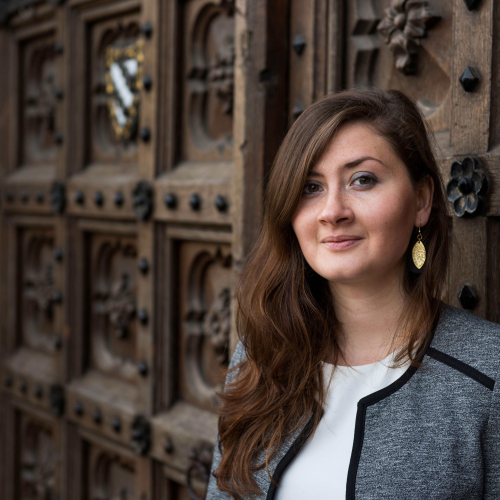
Dr Mari van Emmerik
Throughout my career, I have been fascinated by the nature of the mind. This interest first emerged in my empirical work on linguistic cognition, focused on how bilingual children acquire complex language structures and how language influences thought. It then evolved into exploring religious cognition—how humans develop, maintain, or reject religious beliefs—and now it extends to philosophical questions about artificial intelligence.
My academic journey began with postgraduate studies in Psycholinguistics at the Russian Academy of Sciences, followed by an MA in Applied Linguistics as a Fulbright Scholar at Southern Illinois University. What I thought would be a gap year studying Theology at Wycliffe Hall in Oxford led me to find a new academic home at Pembroke College, where I completed my MSt and DPhil in Science and Religion as a Clarendon Scholar. My doctoral thesis, "The Anatomy of Unbelief: A Critical Assessment of the Cognitive Science of (Non)Religion," supervised by Professor Alister McGrath, examined cognitive approaches to the study of religious nonbelief.
After completing my doctorate, I went on to teach Theology and Science at the Faculty of Divinity, the University of Cambridge, and have been co-leading the John Templeton Foundation-funded research project "Awe-some Spirituality: A Theological and Psychological Exploration of Awe Underlying Spiritual Yearning of the Nonreligious," which investigates how the universal experience of awe bridges secular and religious spirituality.
My new project at Pembroke examines how theological perspectives, particularly the Christian doctrine of Incarnation, can engage with contemporary cognitive science to address challenges of digital justice and epistemological diversity in AI. Drawing on the insights from embodied cognition, which demonstrates how cognitive processes are rooted in bodily interactions with the environment, I critically engage with traditional computational approaches to AI and explore how the incarnational principle—with its unique insights into the relationship between universality and particularity, materiality and intelligence—can contribute to a more equitable and thoughtful technological development.
Alongside my academic work, I participate in public conversations through speaking engagements, think pieces, and collaborations. Drawing on my experience across different cultural and scholarly traditions, I work to build bridges between diverse perspectives. At Pembroke, I have found a community that encourages such conversations, enabling me to pursue research that addresses one of the pressing challenges of our time.
Dr Mari van Emmerik

Throughout my career, I have been fascinated by the nature of the mind. This interest first emerged in my empirical work on linguistic cognition, focused on how bilingual children acquire complex language structures and how language influences thought. It then evolved into exploring religious cognition—how humans develop, maintain, or reject religious beliefs—and now it extends to philosophical questions about artificial intelligence.
My academic journey began with postgraduate studies in Psycholinguistics at the Russian Academy of Sciences, followed by an MA in Applied Linguistics as a Fulbright Scholar at Southern Illinois University. What I thought would be a gap year studying Theology at Wycliffe Hall in Oxford led me to find a new academic home at Pembroke College, where I completed my MSt and DPhil in Science and Religion as a Clarendon Scholar. My doctoral thesis, "The Anatomy of Unbelief: A Critical Assessment of the Cognitive Science of (Non)Religion," supervised by Professor Alister McGrath, examined cognitive approaches to the study of religious nonbelief.
After completing my doctorate, I went on to teach Theology and Science at the Faculty of Divinity, the University of Cambridge, and have been co-leading the John Templeton Foundation-funded research project "Awe-some Spirituality: A Theological and Psychological Exploration of Awe Underlying Spiritual Yearning of the Nonreligious," which investigates how the universal experience of awe bridges secular and religious spirituality.
My new project at Pembroke examines how theological perspectives, particularly the Christian doctrine of Incarnation, can engage with contemporary cognitive science to address challenges of digital justice and epistemological diversity in AI. Drawing on the insights from embodied cognition, which demonstrates how cognitive processes are rooted in bodily interactions with the environment, I critically engage with traditional computational approaches to AI and explore how the incarnational principle—with its unique insights into the relationship between universality and particularity, materiality and intelligence—can contribute to a more equitable and thoughtful technological development.
Alongside my academic work, I participate in public conversations through speaking engagements, think pieces, and collaborations. Drawing on my experience across different cultural and scholarly traditions, I work to build bridges between diverse perspectives. At Pembroke, I have found a community that encourages such conversations, enabling me to pursue research that addresses one of the pressing challenges of our time.